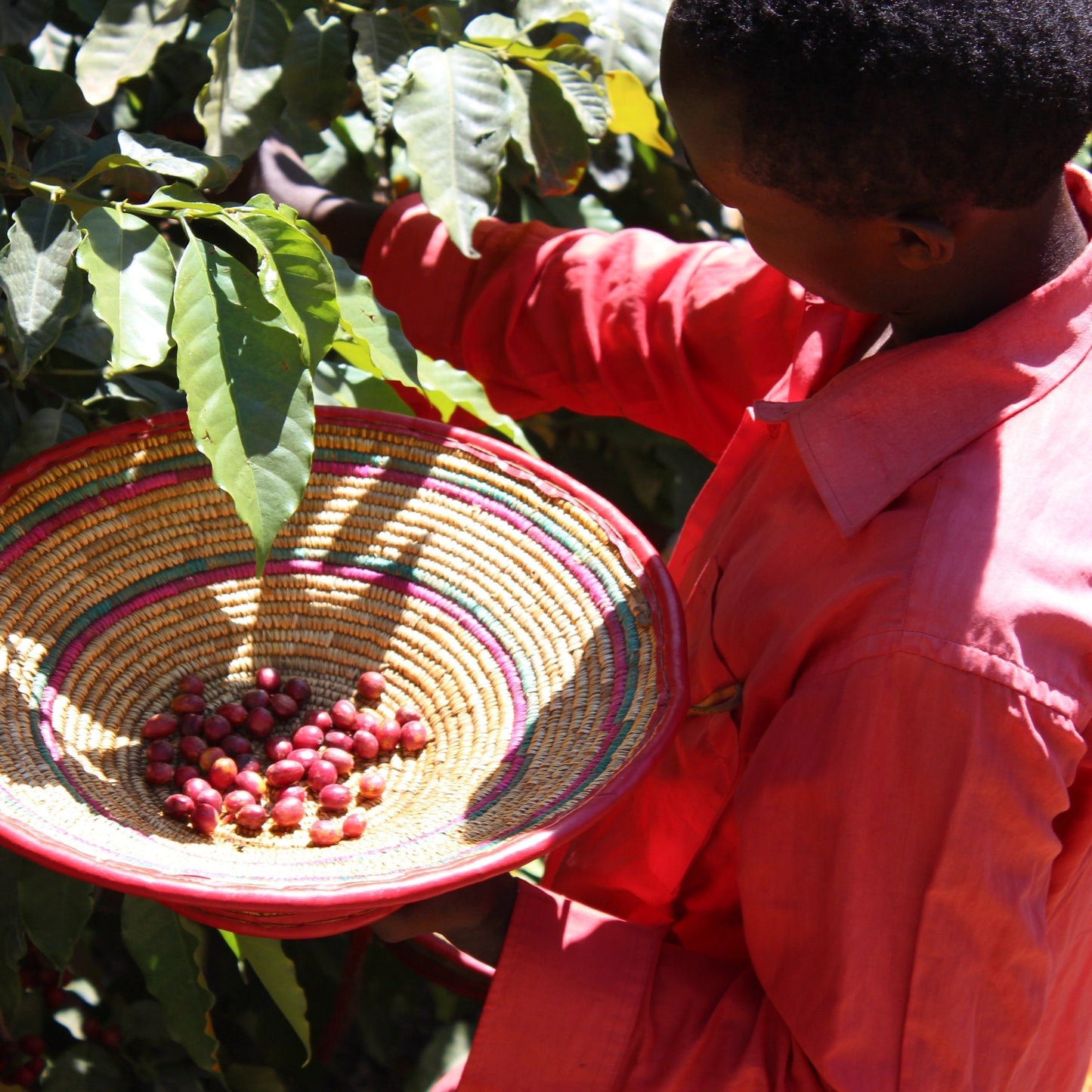
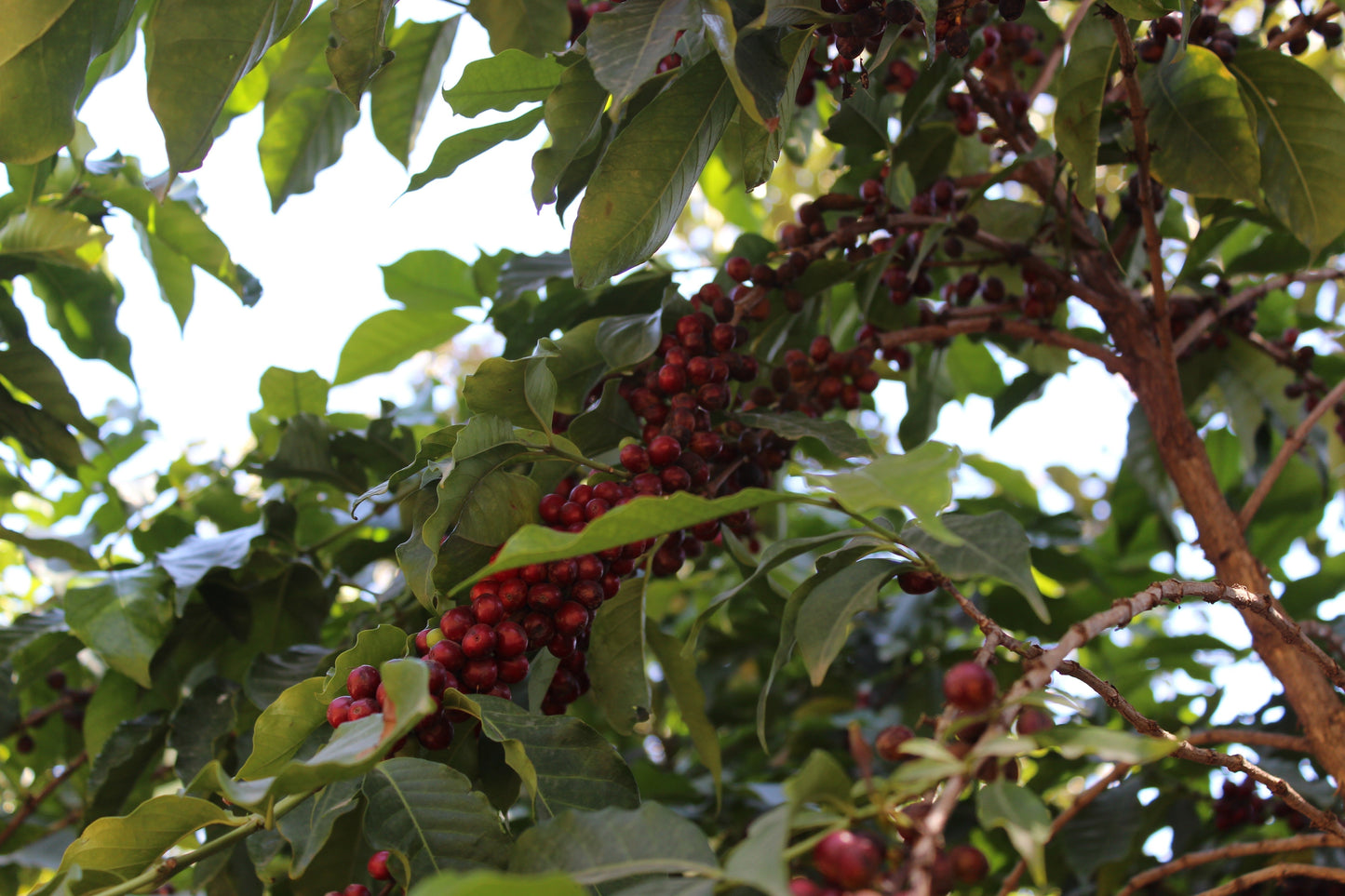
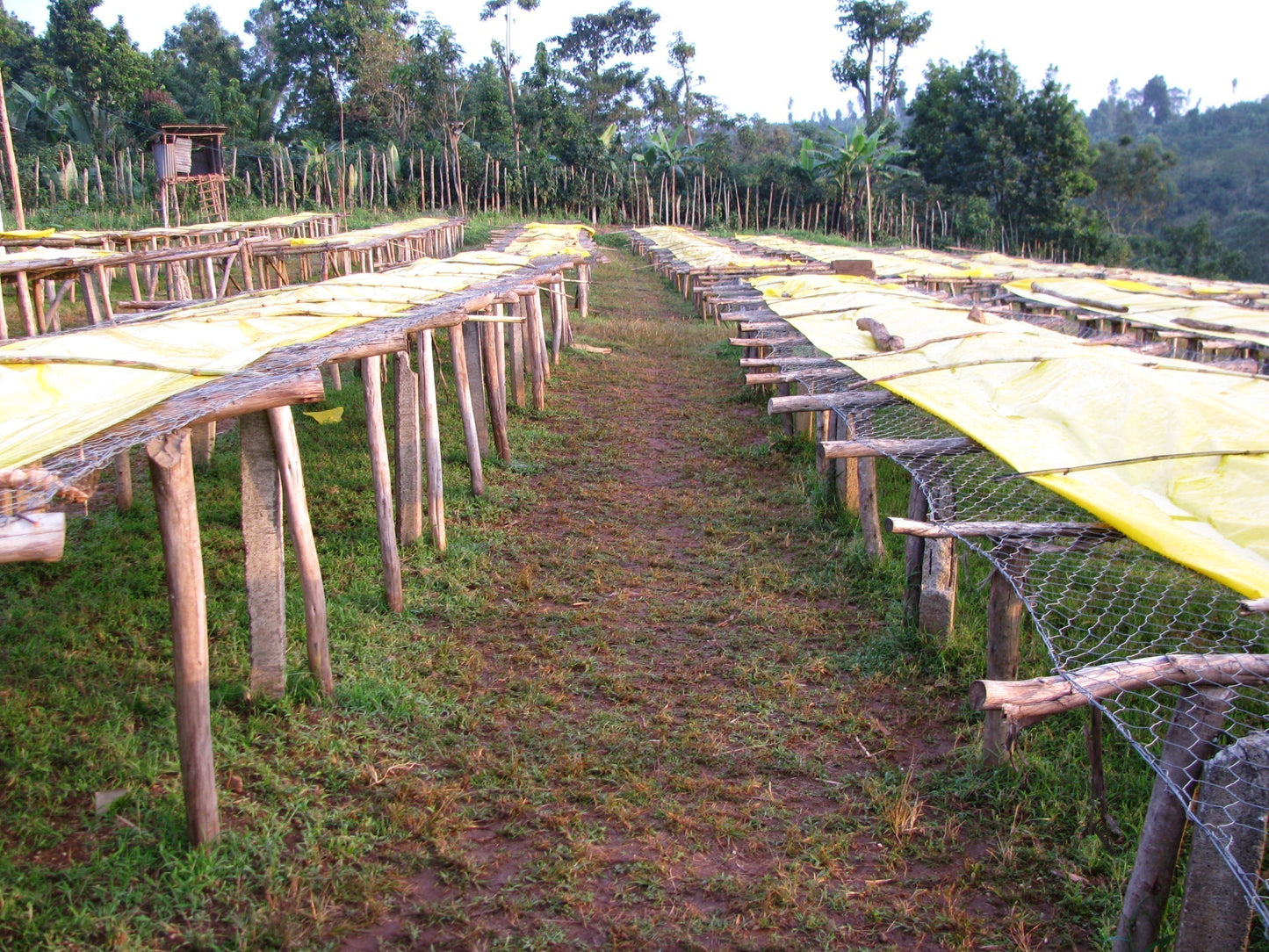
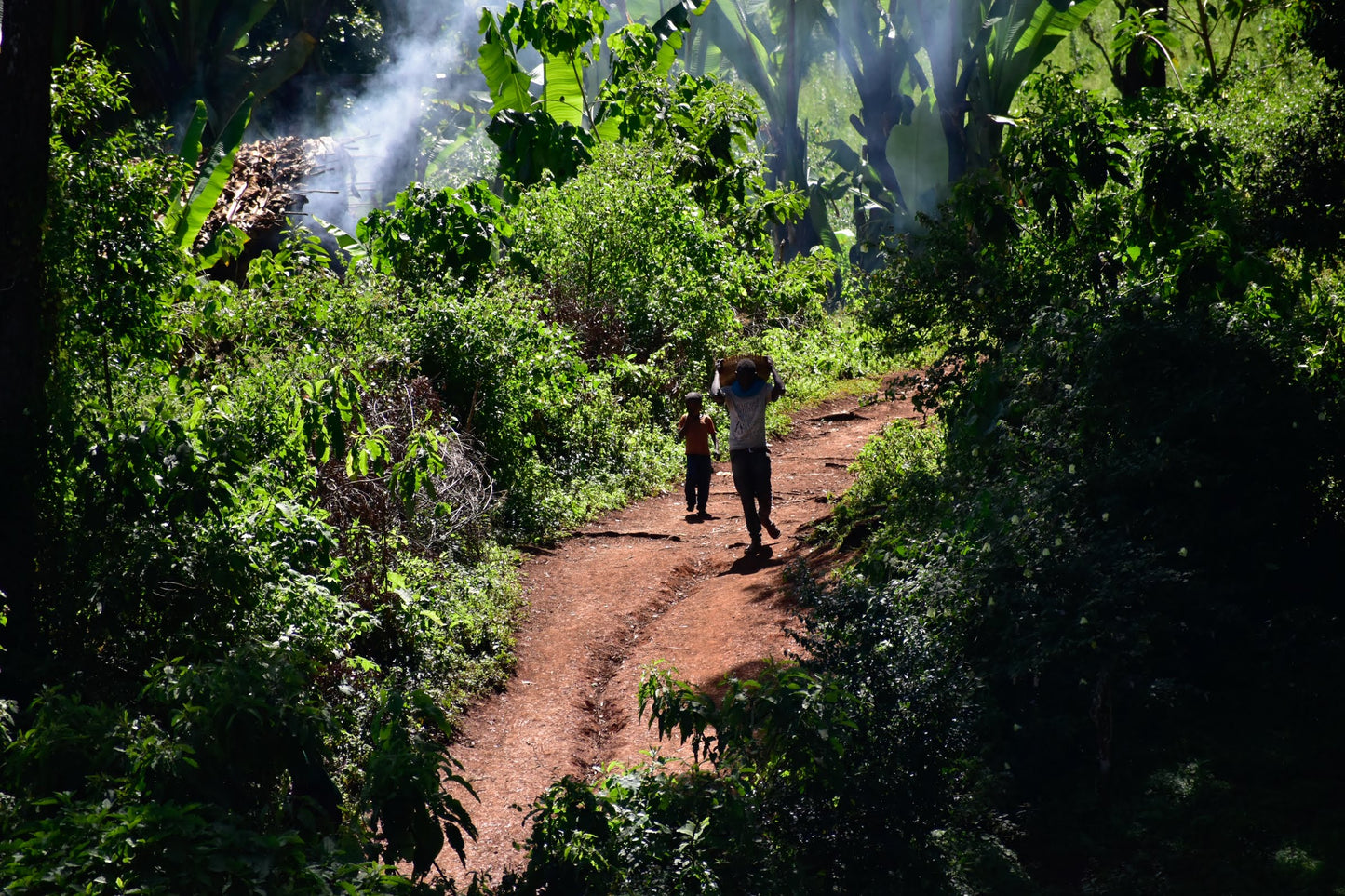
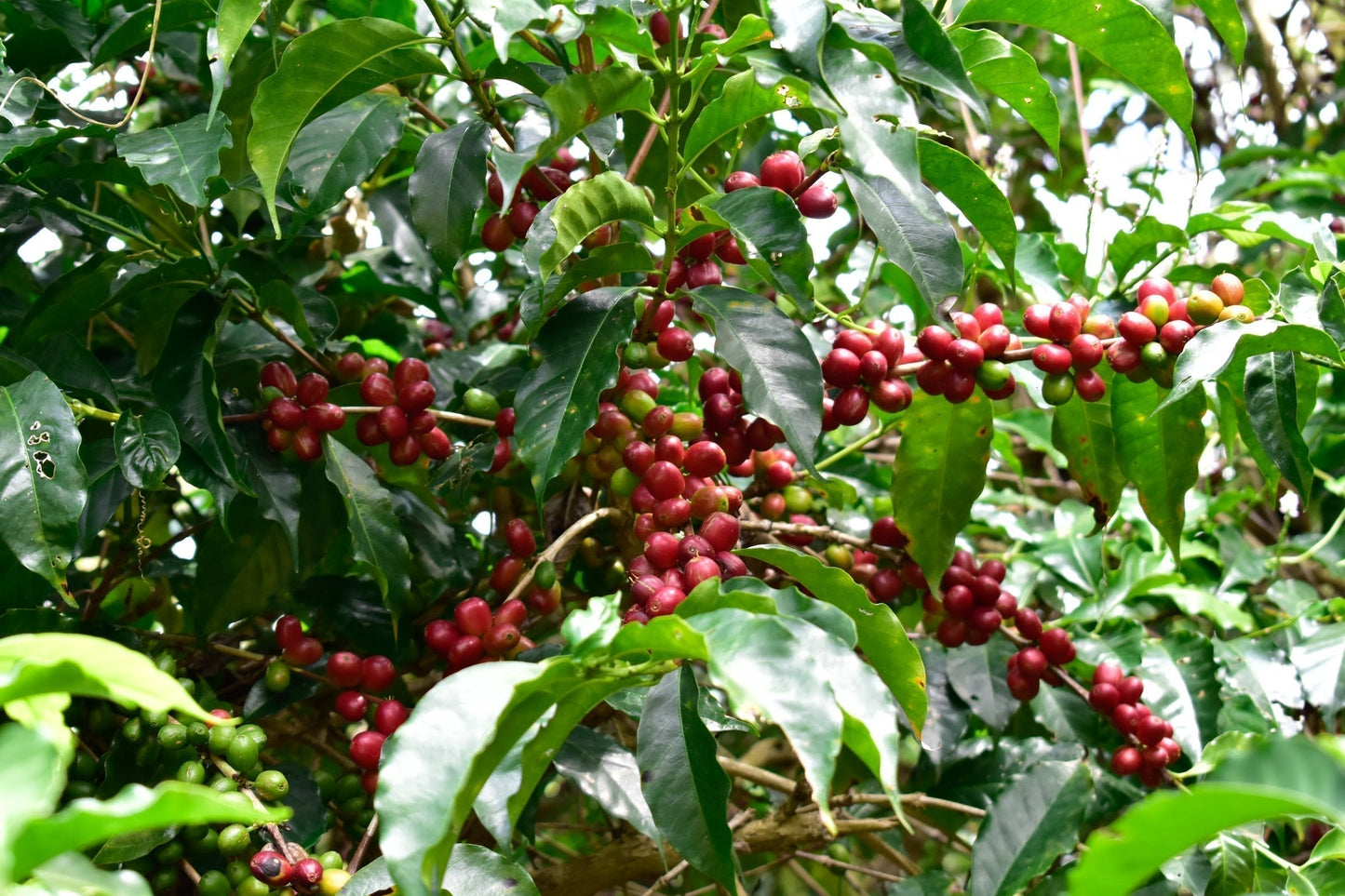
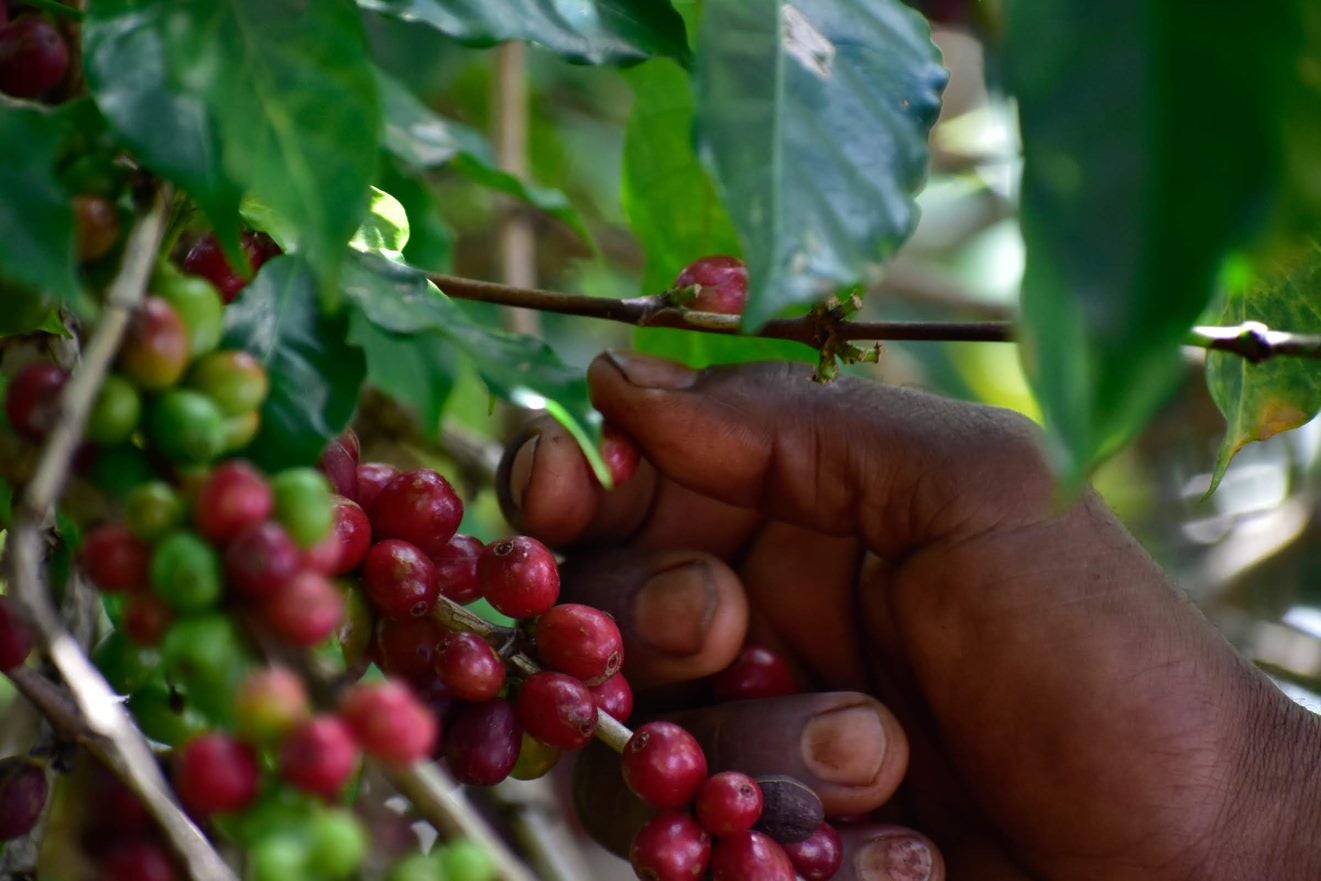
Are you looking to buy Ethiopia | Yirgacheffee Worka Chelchele | G1 Honey #7646 in Australia?
Tasting Notes/Sensory: Black Cherry | Prune Pineapple | Caramel | Green Grape
SCA CUPPING SCORE: 85.75
Suitable with Milk? YES
Roast Level: Medium Dark
AGTRON: 51
Roasted Level Suits: Espresso
PROCESSING: Honey
COFFEE GRADE: Yirgacheffe Honey Gr. 1
FARM/COOP/STATION: Worka Chelichele Washing Station
VARIETAL: JARC varieties , Local Landraces
ALTITUDE: 1,945 to 1,970 meters above sea level
OWNER: Various smallholder farmers delivering to Worka Chelichele Washing Station
SUBREGION/TOWN: Worka Chelichele, Gedeb
REGION: Yirgacheffe
FARM SIZE: 5 hectares on average
HARVEST MONTHS: November 2022 - January 2023
Coffee from Worka Chelichele transcends national and international boundaries. According to political boundaries, the station is in Gedeb Woreda but according to the congruence of microclimates and tastes, the station and the farms that deliver to it are in Yirgacheffe.
Cultivation
Farming methods in the region remain largely traditional. Yirgacheffe farmers typically intercrop their coffee plants with other food crops. This method is common among smallholders because it maximizes land use and provides food for their families.
In addition to remaining traditionally intercropped, most farms are also organic-by-default. Farmers in Yirgacheffe typically use very few—if any—fertilizers or pesticides. Most farm work is done manually by the immediate family.
To capitalize on the magnificent climate, Worka Chelichele provides training to help farmers produce better quality cherry. Training focuses on procedures for harvesting and transporting cherry.
Harvest & Post-Harvest
Farmers selectively handpick cherry and deliver it to Worka Chelichele washing station. At the station, employees hand sort incoming cherry to remove any under- or over-ripes or damaged cherry. Then, parchment and remaining mucilage is transferred to some of the station’s 360 raised drying beds. Coffee is raked frequently to ensure even drying. All drying beds are marked with a code that makes it simple to keep track of traceability and processing status.
About Gedeb
Gedeb, a district named for its largest town, in the Gedeo Zone is largely agrarian. According to a 2007 census, about 11% of the population lived in urban areas. The rest of the population lives in rural areas and are predominately subsistence farmers.
Most farmers in the region farm on fewer than 5 hectares (many counting their coffee farms in terms of trees rather than area). Cultivation methods are largely traditional. Families typically farm small plots of land near their homes and intersperse food crops with coffee and other cash crops.
The majority of coffees grown in Gedeb are local landrace varieties (which are often also called Ethiopian heirloom). Other varieties frequently grown in the region are those developed by the Jimma Agricultural Research Centre (JARC). JARC is an important research center for Ethiopia and has done a great deal of work on developing disease-resistant and high-yielding varieties that still demonstrate high cup quality.
Coffee in Ethiopia
While Ethiopia is famous as coffee’s birthplace, today it remains a specialty coffee industry darling for its incredible variety of flavors. While full traceability has been difficult in recent history, new regulations have made direct purchasing possible. We’re partnering directly with farmers to help them produce top quality specialty lots that are now completely traceable, adding value for farmers and roasters, alike.
The exceptional quality of Ethiopian coffee is due to a combination of factors. The genetic diversity of coffee varieties means that we find a diversity of flavor, even between (or within) farms with similar growing conditions and processing. In addition to varieties, processing methods also contribute to end quality. The final key ingredients for excellent coffee in Ethiopia are the producing traditions that have created the genetic diversity, processing infrastructure and great coffee we enjoy today.
Most producers in Ethiopia are smallholders, and the majority continue to cultivate coffee using traditional methods. As a result, most coffee is grown with no chemical fertilizer or pesticide use. Coffee is almost entirely cultivated, harvested and dried using manual systems.
#BBD0E0 »
SKU: ethiopia_yirgacheffee_g1_honey_60g
Package Weight: 100g






